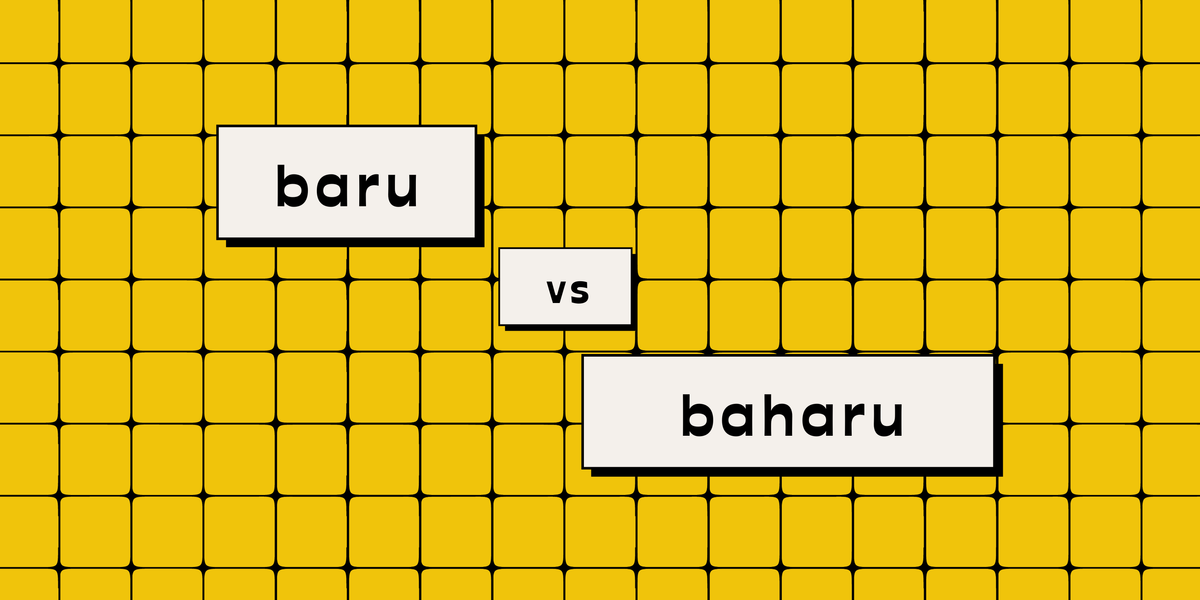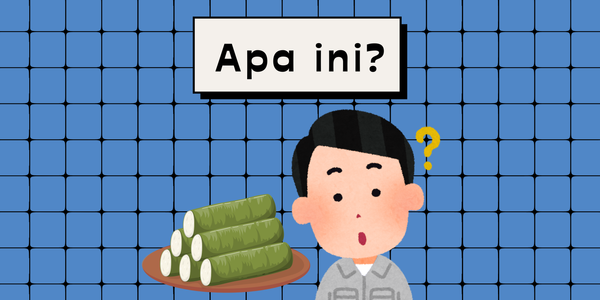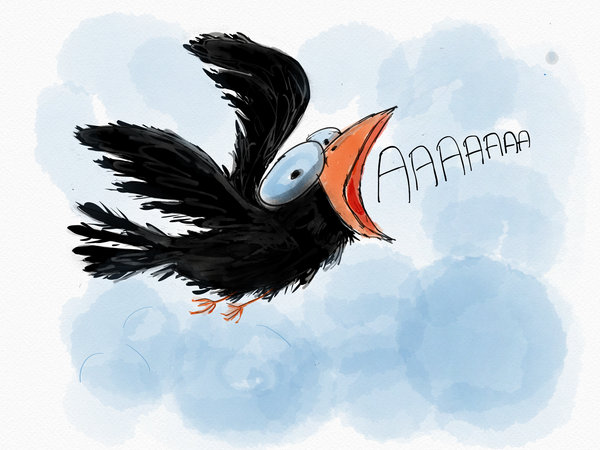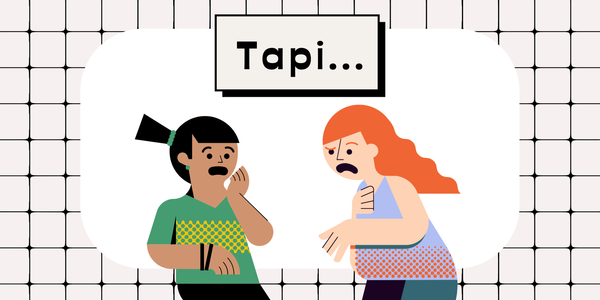Baru vs baharu
What's the difference between baru and baharu? What about bharu and bahru? Take five minutes to read a simple explanation for this conundrum.

Baru means "just". Use it when you want to say:
Baharu means "new". You use this word to say:
Why is it important?
This difference is especially important in formal settings. You need to get it right answering a question at school or when writing an essay.
Linguistically, baru is an auxiliary word. Use it before other words to describe the recent nature of something happening. On the other hand, baharu is an adjective. Use it to describe the newness of something.
Are you thinking, "Why can't I just use baru to mean both?" Well, yes, in everyday conversations even Malaysians do that. So, good news:
We say Selamat Tahun Baru all the time. It is very much accepted. The reason we do this is we are so used to saying baru instead of baharu. Human beings just like to say easier and shorter words. (An extra syllable is that annoying for us!)
Why does baharu exist then?
Because baharu and baru have existed since a long time ago. The regulating organisation of the Malay language and literature (Dewan Bahasa dan Pustaka) came to a decision to apply a prescriptive approach in this matter as it also confused Malaysians. But they also accept the fact that Selamat Tahun Baru is too common to be described as wrong.
What about bahru and bharu?
These are in proper names of some places in Malaysia, like Kota Bharu and Johor Bahru. Their spellings varied from before Malay spelling was standardised, so the proper names have preserved the spelling differences.
Here's a mini quiz. What do these mean? (Click the key to reveal the answer)
🔏 1. Dia baru pergi. 🗝️
Answer: He/she just went.
🔏 2. Rumah baharu dia besar. 🗝️
Answer: His/her new house is big.
Well done! Now you know the difference between baru and baharu.
Sources:
Read the next article in this series ➡️





